
All categories
Featured selections
Trade Assurance
Buyer Central
Help Center
Get the app
Become a supplier

(53684 products available)







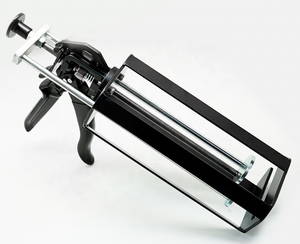


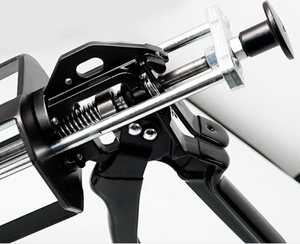

















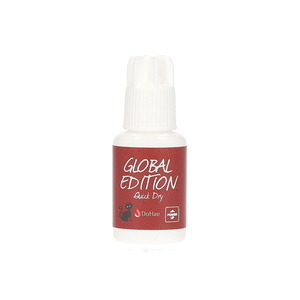




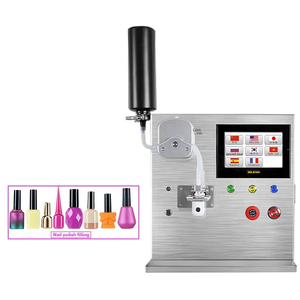





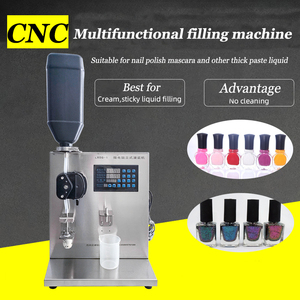

 Ready to Ship
Ready to Ship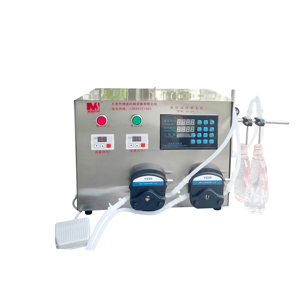
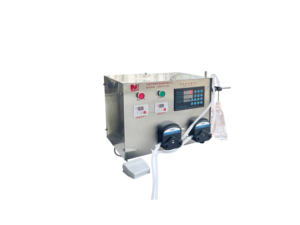



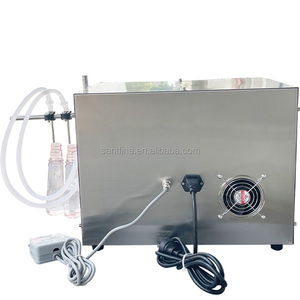
 Ready to Ship
Ready to ShipThere are various kinds of glue pumps, each suited to a specific application and glue type. Below is a catalogue of some of the most common types of glue pumps.
Gear pumps are widely used for their precise and consistent glue dispensing capabilities. They work by using two interlocking gears to move the adhesive from the glue container to the application point. Because of their capacity to pump viscous glues such as epoxies, polyurethane foams, and other low to medium-consistency adhesives, they are ideal for this purpose. Owing to their high accuracy and constant glue flow, glue gear pumps find specific usage in manufacturing and construction industries.
Diaphragm pumps are another type of glue pump that can dispense a wide range of adhesive viscosities. These pumps work by using an elastic diaphragm to create the pressure needed to move the glue. Because they are air-operated, they are suitable for hazardous environments. Their capacity to dispense glues in varying amounts with no change in pressure makes them ideal for applications that need variable dispensing. They work well for epoxies, sealants, and other low-viscosity liquids.
Pneumatic glue pumps are air-compressed and suitable for high-speed production processes. These pumps are known for fast and efficient glue dispensing, often employed in the packaging and woodworking industries, where large volumes of adhesive are needed. Commonly, these pumps are used for thin gloss, varnish, and other solvents, which make them suitable for large-scale operations.
Peristaltic pumps offer a distinctive glue dispensing method by squeezing a tube with a rotating roller. These pumps are good for dispensing small amounts of glue precisely and cleanly. Since the glue flows through a flexible tube, the pump is ideal for dispensing materials that can contaminate equipment – including medical adhesives and certain types of sealants. Their accuracy and cleanliness make them perfect for electronic manufacturing and other industries where adhesive application is very important.
Understanding the commercial significance of glue pumps can help buyers make informed decisions. Glue pumps perform an important function for several industries and have a big impact on efficiency and production.
Glue pumps are essential in many industries, for example, when the adhesive is manually brushed or sprayed. Automated adhesive application will optimize glue usage because it minimizes waste. By ensuring that just the right amount of glue is applied, glue pumps reduce material waste and hence bring down operating costs. This efficiency not only saves money directly but also contributes to a greener environment by reducing adhesive wastage in landfills.
There exist different kinds of adhesives that must be applied in a certain way in order for the resultant product to be of high quality. Variation in the glue quantity leads to inconsistency in bonding, which influences the quality of the final product. Stronger pumps make for more consistent application, which improves adhesive distribution and ensures uniform coverage. Consistency leads to improved product quality and reduced need for rework or product defects in the long run. Consistency leads to improved product quality and reduced need for rework or product defects in the long run. This leads to lower costs and increased customer satisfaction within different industries.
There are different types of glue pumps suitable for many types of adhesives due to the growth of the adhesive industry. As new types of adhesives are invented, our pumps need to help to apply them properly. This means that the pump manufacturers will have to keep expanding their market potential. They can also offer more glue pumps that cater to wild glue varieties to suit diverse industries, including construction, packaging, automotive, electronics, and furniture manufacturing. Pumps designed to handle specialized adhesives open further market opportunities for businesses.
The glue pump technology keeps changing, which provides better performance to manufacturers. Therefore, manufacturers who invest in high-quality glue pumps will be ahead of their competition. Advanced pumps may include features such as smart dispensing to reduce glue usage, automated cleaning, and predictive maintenance. Innovation enhances efficiency and reliability and creates potential for new business offerings, increasing glue pump manufacturers' commercial value.
In order to work well, glue pumps need to be well maintained. So, knowing the value of pump parts and accessories enhances pump performance and reliability. This reduces operational costs, increases the parts sales profit margin, and reduces glue pump ownership expense.
Hydraulic piston pump spare parts are very well known for reducing maintenance and repair costs. High-quality replacement parts increase the longevity and reliability of glue pumps. Filters, hoses, nozzles, and seals, among other pump components, ensure optimal pump performance through maintenance. Access to spare parts reduces downtime due to repairs and helps avoid operating costs, hence increasing the return on investment (ROI) for glue pumps.
As already noted above, glue pump parts, including nozzles, can offer precision tips and just the right glue application. This also improves the performance of the glue pumps. Pressure regulators and other accessories ensure that the glue is pumped at the right glue flow. Such high accuracy reduces wastage and increases production efficacy. Well-maintained pumps provide better consistency, which affects the quality of glued products.
There are many parts of glue pumps that can be retrofitted to work perfectly with new technologies or older machines that are still in use. Parts such as adhesive dispensers or pneumatic pumps can be easily integrated with existing setups. This enables buyers to upgrade their systems without the need to replace the entire pump. Parts compatible with other pumps help manufacturers to create glue pumping solutions that are applicable across many industries, thereby expanding their market reach.
Glue pump parts can make application more specific to an individual buyer's needs. Buyers can customize nozzle sizes, pressure regulation, and other accessible glue pump parts for glue application that meets their requirement. This ensures that the desired results are achieved in specific applications. Customization for specialized adhesives will allow companies to stand out. This way, they can carve out a niche in the market and increase the value they bring to their customers.
Following are some other glue pump selection tips for business buyers.
Business buyers should research the demand for glue pumps in different types of industries. To begin with, glue pumps are commonly used in manufacturing because glue is a major product for pump application in this industry. For example, they are used to apply adhesive in woodwork and furniture, where they remain essential to the creation of glued products. They also find application in packaging, which currently uses glues in product packing. They also find application in construction and building, which use glues in building maintenance. Identify the industry type that usually uses long, hard, and strong pumps and market them to the companies in those industries.
Buyers should learn how the glue pumps they intend to buy function as that will affect how well the pumps will work. There are generally two categories of glue pumps. Manual pumps are those kinds of pumps that are operated by humans. Such pumps are good for small and medium-sized businesses that need a small amount of glue to make a product. Mechanized or powered glue pumps do the process of applying adhesive automatically. The automation of these pumps makes them suitable for large-scale businesses that need a large amount of glue to make a product. Firms can also combine the benefits of both types of glue pumps by ordering a mixed stock of both party glue pumps based on demand.
Glue pump maintenance affects the purchase and usage of glue pumps. If a pump is easy to maintain, more people will use it. This also applies to pH monitoring pumps with easy-to-change parts such as hoses, tubes, gaskets, filters, and nozzles. Business buyers should choose glue pumps with low maintenance needs to minimize the downtime of adhesive applications. In addition, pumps with short maintenance time also come with user-friendly instructions and tips on how to change parts.
Business buyers should learn the materials that make the glue pumps they want to buy and their advantages. For instance, pumps made of plastic materials such as nylon or polycarbonate are light in weight and do not rust. Metal pumps are stronger mechanically and last longer. Stainless steel pumps are both and usually used in industries where hygiene is an important requirement. Other materials used include cast iron, bronze, or aluminum, each with pros and cons.
Followed are some DIY and maintenance tips business buyers can advise manufacturers with.
Manufacturers should ensure all parts are functioning properly before beginning to work on the glue pumps. Check nozzles for clogs and clean them with a small brush or a pin. Inspect hoses and tubes for leaks or wear and replace them if necessary. Check filters and clean or replace them to ensure proper glue flow through the pump.
Gluing a hydraulic gear pump is done using various techniques depending on the type of glue used. The most common method of cleaning a glue pump is using a compatible solvent. The solvent should be flushed through the pump and hoses to remove any remaining glue. For some pumps, dissembling parts to clean them might be necessary. Refer to the manufacturer instructions for advice on cleaning various parts of the pump.
Before starting the pump, manufacturers advise them to check for signs of damage to any glue pump parts. Look for worn-out seals, gaskets, or worn belts and replace them. Check for rust on metallic parts and replace them with new ones if there is rust. Further, inspect worn hoses as they can cause leaks and reduce pump efficiency.
Hygienic and clean pumps perform better and increase longer service life. Follow the manufacturer's instructions for maintenance and advise customers on proper maintenance practices. Create a maintenance schedule guide to help customers remind them of tasks like cleaning, inspecting, and replacing worn-out parts. Advisable manufacturers provide information manuals and maintenance guides for each pump.
A1.Packaging, construction, automotive, woodworking, and electronic manufacturing business rely on glue pumps.
A2.Yes, there is a need for maintenance for glue pumps. Further maintenance requirements differ by type.
A3.Stainless steel is the most common material used in the making of pumps.
A4.Business buyers select adhesives for their customers based on the kind of industry they serve and the brands they trust.
A5.No. Each glue pump maintenance is based on its manufacturer.